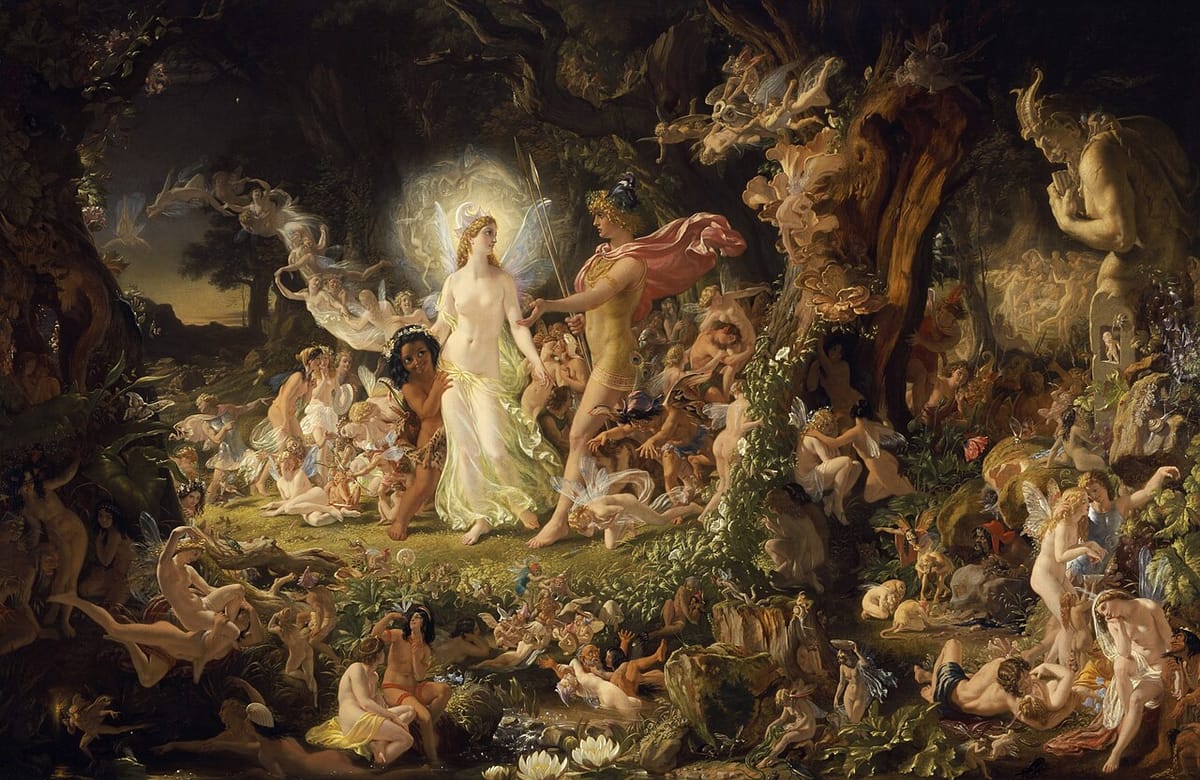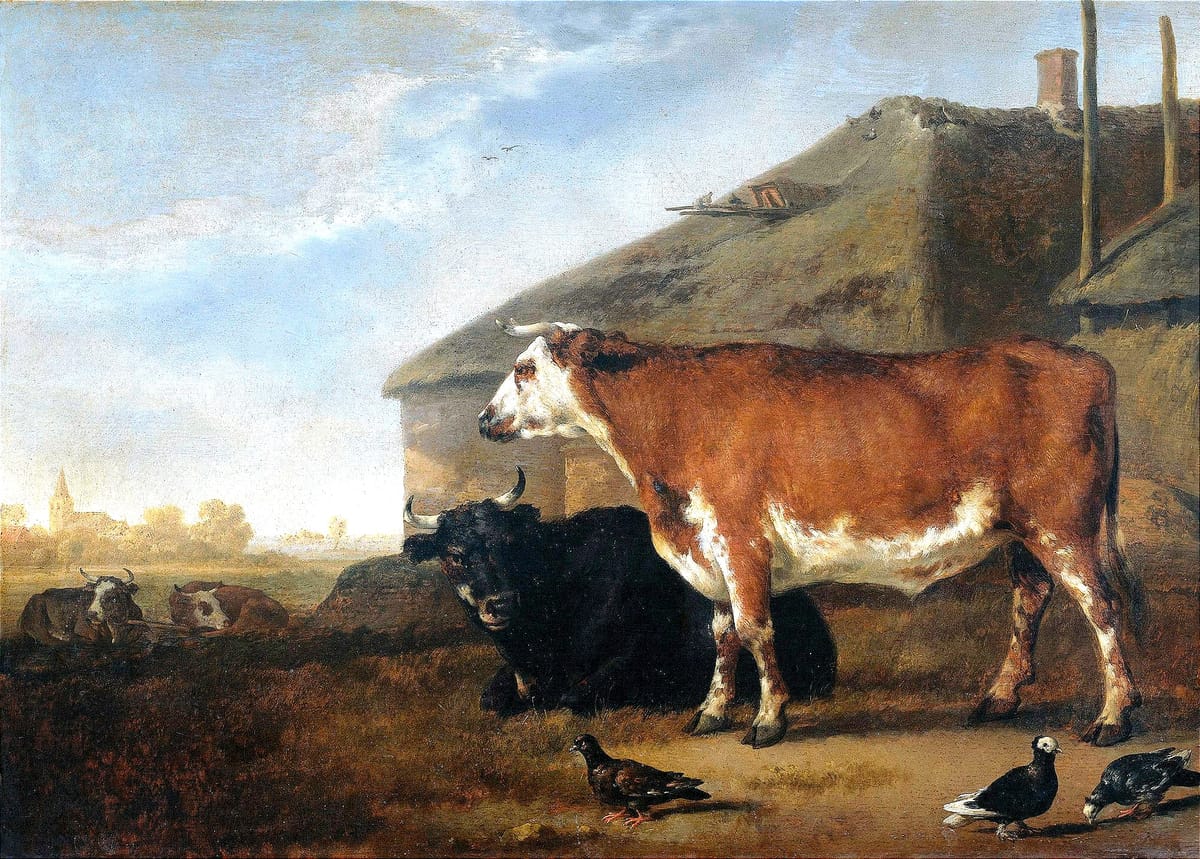We Say We Hate Polarization. But Do We?
For all the laments, polarization offers clarity, identity, even pleasure. Until we confront its seductions, we risk a democracy not overthrown in crisis, but slowly hollowed—eroded by habits that reward division more than deliberation.

There is perhaps a sacred civic cliché in American public life - the belief that polarization is bad. Presidents bemoan it. Pundits wring their hands over it. Polls suggest majorities in both parties see it as a threat to democracy. It is the rare point of rhetorical unity in a divided country. If we cannot agree on what to do about health care, immigration, or the economy, we can at least agree that polarization is tearing us apart.
But do we really believe that?
Scratch the surface of this consensus, and a more complicated picture emerges. For all the alarm about division, polarization is not just tolerated—it is cultivated, monetized, and, in many quarters, quietly enjoyed (Has Polarization Become 'Infrastructure'? Seven Layers of Division, CD Mag). It simplifies the moral landscape, clarifies political choices, and gives shape to otherwise abstract frustrations.

Polarization is often denounced in theory but exploited in practice. It is the scapegoat of our conscience and the functionary of our convenience.
Polarization is often denounced in theory but exploited in practice. It is the scapegoat of our conscience and the functionary of our convenience.
This hypocrisy is not incidental—it is structural. In a deeply divided society, polarization is useful. Politicians use it to rally base voters and avoid hard questions. Media outlets, driven by engagement metrics, feed on outrage and tribal narratives. Activists thrive on the energy of stark contrasts and existential stakes. Even those who call for moderation often do so performatively, defining themselves against the irrational extremism of "both sides."
Polarization, in other words, is not merely a pathology of modern politics—it is somehow becoming a strategy, a product, and for some, a pleasure.
Polarization, in other words, is not merely a pathology of modern politics—it is somehow becoming a strategy, a product, and for some, a pleasure.
Consider electoral incentives. In gerrymandered districts with closed primaries, candidates win not by persuasion. A deeply polarized electorate makes this easier. There is little need to appeal to the center if the center has disappeared. Congressional gridlock, far from being a failure, becomes a form of political branding. Legislators boast not of laws passed but of bills they helped kill. Dysfunction becomes demonstration.
Media companies, both traditional and digital, have no incentive to fix this. Rage is profitable. Outrage clicks better than reason. Cable news, talk radio, and algorithm-driven platforms offer not information but identity: partisan, moralized, emotionally charged. Audiences are not asked to understand the world—they are asked to join a team. As political journalist Ezra Klein observed, identity-based polarization transforms political disagreement into something much deeper: a conflict over who we are.
The psychological appeal is even more primal. In a world of complexity, polarization offers simplicity. Us vs. them. Good vs. evil. It provides a narrative structure in which one's beliefs are confirmed, one's enemies are vilified, and one's sense of belonging is secure. Social psychologists have documented how partisans consistently overestimate the extremism of their opponents—and how those misperceptions fuel hostility, even violence. But those misperceptions are not bugs in the system. They are features. They make the story more satisfying.
This is why affective polarization—the emotional loathing of the other side—has outpaced ideological polarization. Americans are not as far apart on issues as they think (still much further than two decades ago). But they hate each other more. And that hatred feeds everything: campaign donations, media consumption, voter turnout. It is a renewable resource, endlessly mined.
None of this makes polarization benign. As recent scholarship has shown, extreme polarization undermines democratic norms, paralyzes governance, shreds social trust, and corrodes mental health. It makes compromise shameful and consensus impossible. It rewards demagogues and punishes deliberation. Most dangerously, it legitimizes the idea that the other side’s victory is not just a loss, but a threat to the republic itself.
Yet the danger is heightened by our refusal to admit how much polarization suits some of us. The posture of regret cloaks the practice of indulgence. Elected officials decry divisiveness while running divisive campaigns. Commentators denounce tribalism while reinforcing tribal loyalties. Voters say they want unity but click and share what confirms their side’s superiority.
Yet the danger is heightened by our refusal to admit how much polarization suits some of us. The posture of regret cloaks the practice of indulgence.
This is not a call to cynicism. It is a call to honesty. To resist polarization, we must first understand why it persists. Not just because of structural forces—though those matter—but because of what polarization gives us: meaning, identity, attention. These are powerful human needs. If we want to de-escalate the partisan arms race, we must find ways to meet those needs without manufacturing enemies.
This is not a call to cynicism. It is a call to honesty. To resist polarization, we must first understand why it persists. Not just because of structural forces—though those matter—but because of what polarization gives us: meaning, identity, attention.
That means institutional reform, yes—ranked-choice voting, nonpartisan primaries, algorithmic transparency. But it also means cultural and moral reckoning. We must ask ourselves: Do we really want a less polarized society, or do we simply want to win the war more efficiently? Do we value truth, or just narratives that flatter our side? Do we really care about the others with different ideas for our society? Do we seek understanding, or merely affirmation?
Polarization is not just a civic illness. It is also a civic temptation. It flatters us, excites us, simplifies the world. That is why it endures. That is why it must be confronted—not merely with technocratic fixes, but with moral clarity. Until we do, we will remain trapped in the very conflict we claim to abhor, fighting over who "destroyed" democracy while it quietly slips away.
Polarization is not just a civic illness. It is also a civic temptation. It flatters us, excites us, simplifies the world. That is why it endures.
We say we hate polarization. But if we’re honest, we must ask: what part of us secretly loves it?
This is why we chose Joseph Noel Paton’s The Quarrel of Oberon and Titania (1849) to accompany this cogitation. The painting draws from A Midsummer Night’s Dream, in which the fairy king and queen fall into bitter conflict over a seemingly minor issue: a changeling child. Titania has adopted the boy, the son of a mortal friend, and refuses to surrender him to Oberon, who demands him as a page. Their standoff is not truly about the child—it is about pride, jealousy, and control. The quarrel, left unresolved, plunges the natural world into chaos.
In Paton’s lush, elaborate vision, this personal dispute unfolds as cosmic theater. Swarms of fantastical creatures react in frenzy or delight; the court becomes complicit in the drama. No figure seeks resolution—only allegiance, display, and emotional satisfaction. That is precisely the dynamic this essay confronts. Like Oberon and Titania, we too quarrel for spectacle. Our divisions are often less about substance than about loyalty, identity, and the intoxicating rewards of enmity. The world outside the quarrel suffers, but inside, the passions feel real and righteous. Paton’s painting is a warning, rendered in gold and shadow, about what happens when performance replaces principle, and conflict becomes its own reward. ◳






